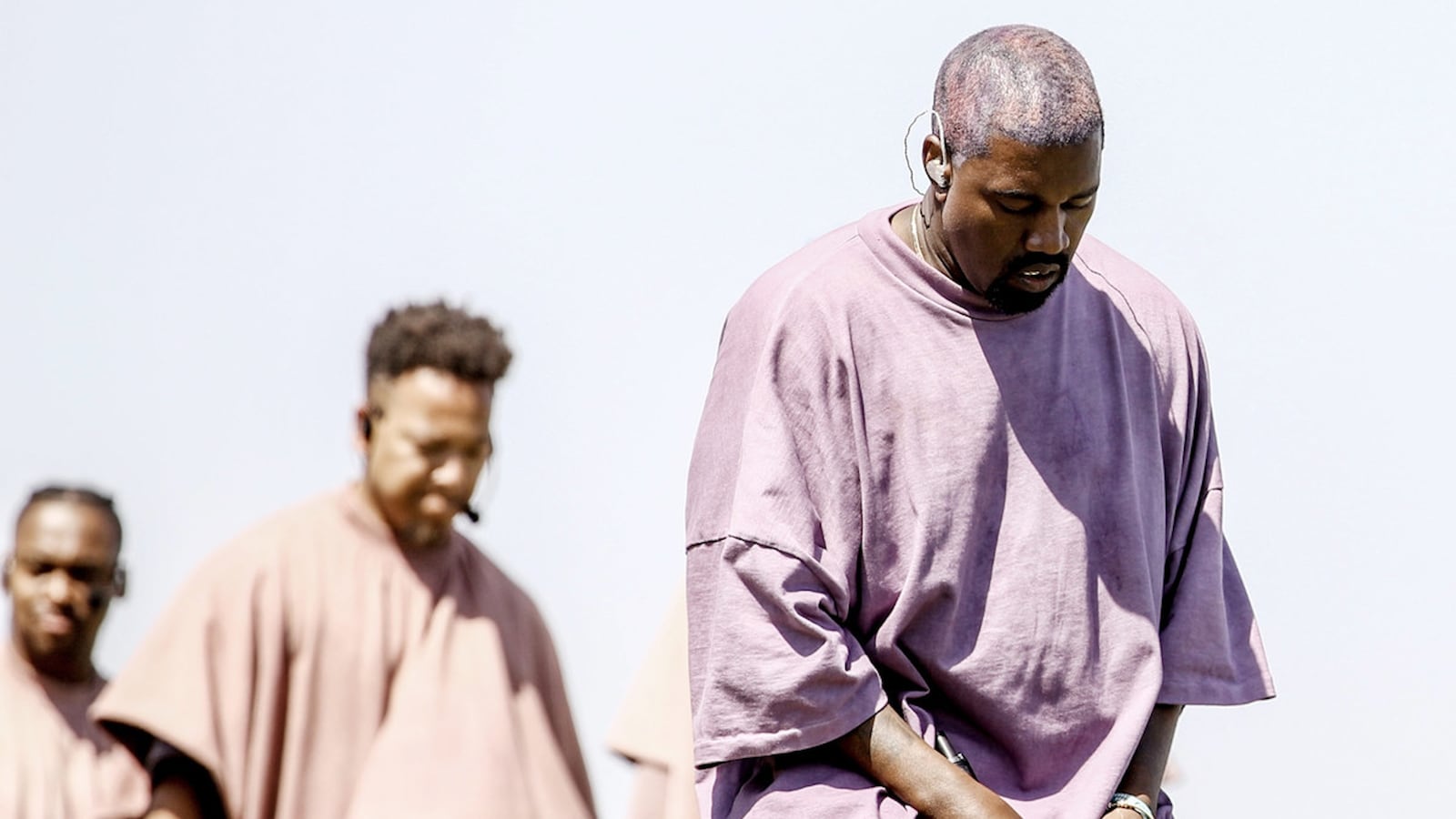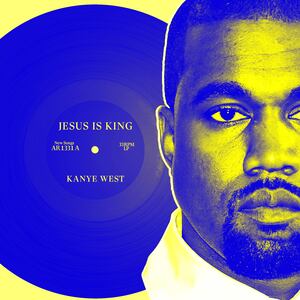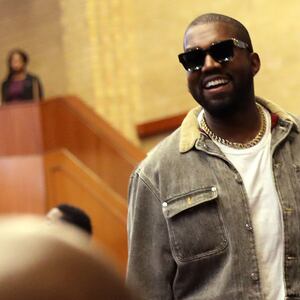“The most racist thing a person can tell me is that I’m supposed to choose something based on my race.”
That was Kanye West explaining to Big Boy why he resented commentary suggesting his 2018 pro-Trump antics were off-putting considering Donald Trump’s history of racism. The interview with the radio host featured West pontificating on his image, his faith and his critics—and the rapper still sits somewhere between arrogance and ignorance when it comes to sociopolitical issues. On the heels of his latest release, the Christian-themed Jesus Is King, West’s take on race and culture has become even more steadfastly empty—stifled by his belief in his own persecution and, most tellingly, by the resentment and stereotypical lens that he seems to have developed for his own people.
“I’m only afraid of my daddy, God,” West told Big Boy after he was asked whether or not he was afraid of losing his audience. “I done been 15 years. I’m telling you that God is showing you that you can have your own thoughts, bro. I been canceled before there was cancel culture.”
That seems to be West’s mantra these days: you’re not the boss of me. It’s his ultimate justification for Trump support; it’s always been his most bitter barb at perceived gatekeepers that he’s simultaneously fawned over. He may be talking more about God and Jesus these days, but Kanye West still mostly kneels at the altar of Kanye West. But its long past time for the public to depart from his church. West’s persona has shifted from simply controversial to something more disturbing and damning. Under the shroud of religiosity and standard Ye hubris, he’s become the Pied Piper of something more insidious: self-hatred.
In his recent spate of interviews, West has confirmed what many have suspected for years: he’s wholly enamored and obsessed with white approval. And as he rails against liberals, it’s obvious that what he despises about liberals is couched in what he believes about black people—that we are led by the nose by the Democratic Party; that we are perpetrators of our own victimhood; that we are amoral and materialistic. He revealed as much during his sit-down with Big Boy, when he raved as he recounted an exchange with a white conservative who stopped him in traffic to praise him and equated Christianity with “Middle America.” He repeatedly implied that that America—the “Bible Belt,” as he sees it—is the “real” America, bemoaning everything from abortion to “taking God out of schools.” After performing in black churches around the U.S., he’s still using the MAGA tribe and its rhetoric as the example of faith in a country he sees as going off the rails. It says a lot about who he connects with, and who he aspires to be.
And as the country continues to wrestle with race, West represents an anti-black mindset that galvanizes both politics and culture, as more young people parrot the president and his rhetoric and mouthpieces like Candace Owens continue to book high-profile engagements. Like Owens, West responds to questions about his Trump support with dismissals of the Democratic Party. It’s as if he’s so invested in separating himself from what he sees as “typical” blackness that it doesn’t matter who he aligns himself with—so long as it separates him.
“I’m not telling nobody to not vote Democrat, I love Obama, I love Lemonade, I love Wingstop, I love Polos, I love Jordans.”
That West sees whiteness as Steve Jobs, Elon Musk, the “real” America and aspirational ingenuity, but sees blackness as Polos, songs about promiscuity and criminality, and voting for Hillary Clinton, is especially outrageous. While claiming that he’s “still our voice” (as Big Boy framed the question), West answered yes with the above Wingstop-referencing quote, as if that’s what he thinks black people want from him. Earlier in the interview, West explained that he resented being viewed as a “coon” because he didn’t support Hillary Clinton’s 2016 presidential bid, as if there weren’t legions of Black voters who were also not in support of Clinton. Not supporting Hillary Clinton does not automatically equate to fawning over Donald Trump, but for Kanye West, that seemed to be the logical conclusion. It’s galling that he has become so disconnected from black viewpoints that he doesn’t see how wide the chasm is between those two extremes; nor does he really grasp why so many have decided to walk away from him, and what he represents.
“Last year, y’all tried to tell me who I’m supposed to vote for because I’m black. Now, this year, white liberals are trying to tell me who I’m supposed to vote for because I’m Christian.”
“You’re not the boss of me” can breed idiocy if your viewpoint isn’t led by anything other than a need to buck perceived criticism. But when your views are given platforms and when you have wide influence (Kanye claims that he’s beloved by Gen Zers in high schools and colleges), it is irresponsible to proudly proclaim you aren’t thinking that hard about what you say. When what you say carries so much contempt for your own; when what you say callously marginalizes non-Christians in your community, your audience and around the country; when you take an anti-abortion stance seemingly on a whim; and when you echo the ignorance of right-wing talking heads that condescend to black experiences and perspectives, your being “free” to say what you want is secondary to the toxic ideas you endorse.
West is free to say and think however he wants—and, given his immense popularity, he still has enough of a platform to espouse his ideas without much consequence. But at some point, we have to decide if he’s worth listening to anymore. He can say these things because he knows that he doesn’t need the community that made him anymore. He knows that there is an audience—and a president—that loves having him on their side. That most of them don’t look like him is actually a boon to him. He knows where his bread is now being buttered.
He knows who his bosses are.



